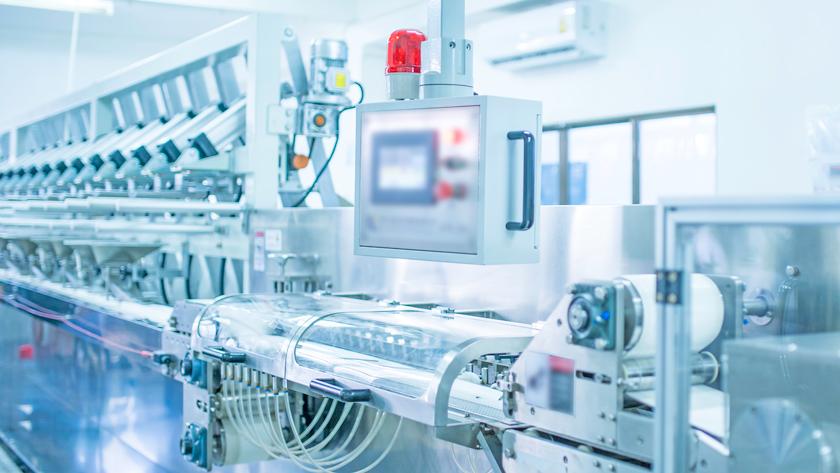Advanced manufacturing to pave way for pharma industry

The time has come to transition to sustainable strategies – centred around inclusion, innovation, and integration. 2023 will continue to pave the way towards sustainable manufacturing, with a growing number of organisations placing focus on creating long-term solutions. Now is the time for the packaging industry to shine and to drive sustainable alternatives in a tangible way – moving away from the use of plastics during the process of manufacturing medicines and the single-use packaging containers, responsible for a massive environmental burden, in terms of waste management.
A matter of mindset
However, it's important to note that, while some of the largest and most developed countries and regions are taking significant steps to introduce regulations to drive sustainability, others are still operating as per the status quo, with limited or no regulations in place. Resistance issues can only be overcome by changing the mindset of those involved. From top-down and across supply chains, it needs to be across all stakeholders.
We are now seeing the rapid emergence of API facilities globally. Integrating these new facilities with state-of-the-art effluent management systems (for example, a zero or minimal liquid discharge), will help reduce water wastage, generate reusable water for creating more sustainable manufacturing, and help to diminish the industry burden. Companies must integrate a ‘just in case’ strategy, moving away from ‘just in time’, to ensure long-term sustainable manufacturing.
Industry 4.0
Manufacturing sites employing batch manufacturing methodology, built on legacy processes, will have high set-up costs, quality and reliability issues, and create a lot of wastage. The huge losses which result could be reversed with the use of industry 4.0 technologies. Now is the time for new manufacturing sites to adopt and implement new technologies; to transform pharma manufacturing from being reliant on historical operational methods and facilitate the growth of ‘smart factories’.
Digital technology will speed up processes by enabling early detection of wear and tear on machinery lines. It will also help to reduce wastage and recalls by effectively tracking defective batches, allowing for timely interventions.
Placing digital ‘Industry 4.0’ technologies – such as AI, machine learning, IoT, and Augmented and Virtual Reality – at the heart of manufacturing can further improve R&D and speed up testing, compliance, and efficiency. Adopting Industry 4.0 technology and new delivery models will build a more self-reliant and robust pharmaceutical supply chain to keep up with changing and increasingly complex healthcare needs. At ACG, our focus is on creating high-performing and quality driven manufacturing units that can support smart, connected, and intelligent systems.
Healthcare innovations
The growth of digital health technology and telemedicine will continue to drive healthcare innovations in 2023. Post Covid-19, health tech developments tend to be centred around at-home and remote diagnosis, ultimately aimed at improving clinical outcomes and pre- and post-consultation care for more ‘informed’ patients.
The inception of digital technologies will help to aid R&D, improve compliance, and efficiency in manufacturing.
- Medical devices - The progress in the technology used in medical devices has enhanced the quality of healthcare delivery and support systems, which is creating better clinical outcomes. And I believe that, as an emerging economy and with the third highest start-up pool globally, India is well positioned to be the leader of MedTech innovation in the years ahead.
- Pre/post consultation care – The ‘informed patient’, thanks to the growth of digital health technology, and the increasing availability of information over the internet, has become prominent. Digital health technology and monitoring have massively helped towards improving the lives and healthcare remedies for people especially, senior citizens, and chronic disease patients. And this is an area where we will continue to see further developments. Appropriate practices and policies must align with our resources, as well as our existing and future needs.
- Telemedicine - Bridging the gap between hospitals and homes has become more prevalent than ever, following the pandemic. Aided by the adoption of advanced industry 4.0 technologies, as well as device integration, we are beginning to see increasing numbers of complicated tests, such as dialysis at home, being performed.
- Drug discovery – Finding efficient combinations of medicines and combining medicines into single doses with varied release profiles will be instrumental in-patient compliance.
- Preventative medicine – Advancements in personalised healthcare using AI and predictive analytics can help clinicians adjust the levels of care they provide based on factors such as age, genetics, or risk, rather than a one-size-fits-all approach to influence improvements to patient outcomes.
- Personal wellness – The pandemic gave way to a surge in interest and awareness of maintaining a healthy lifestyle, resulting in more attention being given to nutrition, physical activity, sleep, and positive habits related to wellness. Interest in plant-based, vegan, and vegetarian supplement products continues to increase with the growth of nutraceutical alternatives as the most credible solution.
India – beyond generics to biosimilars
India has evolved into the third largest drugmaker in the world in terms of volume. It now supplies pharma products worth $24.47 billion (FY22), to 200 countries across the world, and generates an annual net trade surplus of $17 billion.
Acquiring a leadership position in the pharmaceutical generics sector, now is the time to look beyond generics and the movement towards biosimilars.
Inclusion, innovation, and integration will be keywords for the pharmaceutical industry in 2023. Corporates needs to re-think their strategy to fulfil the exponential growth in the sector, by leaning towards digital solutions that, in turn, will open the gates for more eco-friendly structures.
About the author

An organisational psychologist by education, Karan Singh is the managing director of ACG, a future-ready solutions provider to the pharma industry. Passionate about converting ideas into growth opportunities, Singh takes a keen interest in creating entrepreneurial visions that solve real-world challenges. He is an investor and mentor to 35+ health-tech start-ups guiding strategy, technology, expertise, and network. Years of playing basketball as a point guard drives his leadership, communication, and competitive spirit. Singh serves on the ‘India Advisory Board’ for the India-Brazil Chamber of Commerce and is an active contributor to the Global Lighthouse Network community of the World Economic Forum.












